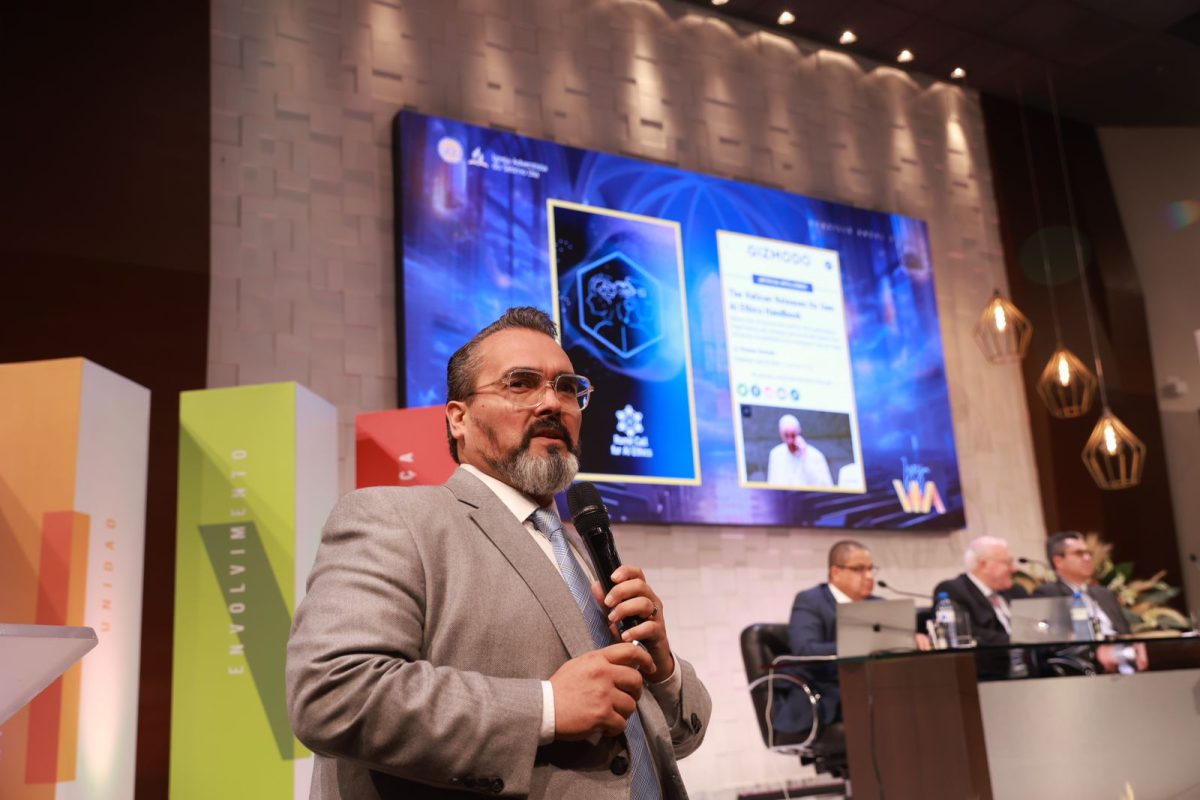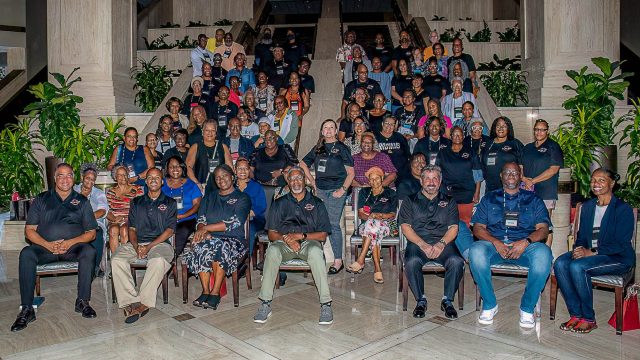Guidelines address its ethical use at all levels within the Adventist organization.

Recently, OpenAI, the company behind ChatGPT (a popular generative artificial intelligence system), announced investments in what they called catastrophic risks. The idea is to create a means to prevent Artificial Intelligence (AI) systems from deceiving people, generating hateful content, and creating malicious coding. Another concern is AI’s capabilities for chemical, biological, radiological, and nuclear threats.1
Experts project that the generative AI market will reach US$1.3 trillion by 2032.2 In 2022, the market was valued at $40 billion. Generative AI refers to the use of AI to create content such as text, images, music, audio, and videos. In the last three years, such systems have become more popular.
Concerns for Seventh-day Adventists
Concern about the effects and consequences of all this technological advancement also impacts religious organizations. The Seventh-day Adventist Church is one of them. The church is aware of its responsibility on a global scale and, across the South American Division (SAD), to serve more than 2.5 million members and a network of schools, colleges, universities, clinics, hospitals, and social and relief initiatives.
It is this awareness that led Adventist leaders in South America to present a document titled “Ethical Principles for the Use of Artificial Intelligence by the Seventh-day Adventist Church in the South American Division” for a vote on November 5, during the regional 2023 Annual Council of Adventist leaders in Brasilia, Brazil. The document was drafted by a committee of experts in the areas of communication, technology, and compliance, the latter dealing with the organization’s commitment to the soundness of decisions made. The document suggests that the church “establish essential ethical principles, which represent the vision of the Seventh-day Adventist Church on the topic of artificial intelligence.”
Issues Addressed in the Document
Several aspects were considered in the production of the Adventist guidelines for the use of AI: transparency, fairness, trustworthiness, accountability, security and privacy, and sustainability. It is clear that ethical use is at the basis of the organization’s push in this area. As the document itself attests, the Adventist Church in the SAD “is committed to transparency regarding the use of AI in its activities. This includes providing clear and accessible information to members of the Adventist community and society as a whole about the areas in which AI is applied, its intended goals, and the potential impacts on the religious context.”
The document approved by delegates to the Annual Council of the Seventh-day Adventist Church in the SAD concludes with two important observations. The first is the interest of the organization in continuing research on new technologies in order to enhance methods of preaching the gospel to more people.
Another point is to reaffirm the strategic role of human beings as sovereign agents in final decisions, as they engage in a collaborative work process with AI resources. SAD communication director Jorge Rampogna pointed out that some churches are still reflecting on the issue, but that the ethical implications of using AI are important. “We need [to] ensure that the AI system be used according to Bible principles,” he said.
The original version of this story was posted on the South American Division Portuguese-language news site.








